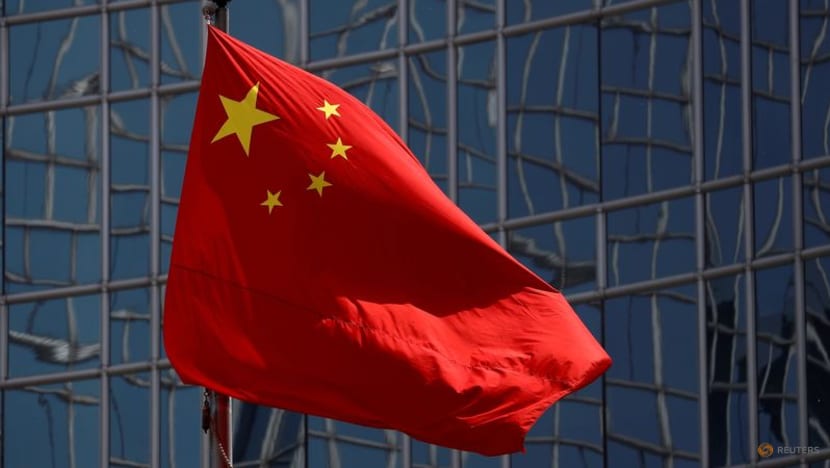India has cried foul over China’s decision to put on hold UN listing of Lashkar-e-Taiba’s (LeT) second-in-command Abdul Rehman Makki. India and the US, June 1, jointly proposed to list Makki, the brother-in-law of Lashkar-e-Taiba head and 26/11 mastermind Hafiz Saeed, under the UN Security Council’s Al-Qaeda (Dae’sh) and ISIL Sanctions Committee. Both the countries had already listed Makki as a terrorist under their domestic laws. India seems helpless in stopping China from tormenting it diplomatically, militarily and in strategic manoeuvring. The development is especially humiliating for India as it has happened only a week before China presides over the five-nation 14th BRICS (Brazil, Russia, India, China and South Africa) summit to be held virtually June 23. Ironically, China’s President Xi Jinping will host the high-level dialogue under the theme of “Foster a Global Development Partnership for the New Era to Jointly Implement the 2030 Agenda for Sustainable Development.” One wonders how partnerships can be made in a climate of suspicion, animosity and mistrust, especially when India seems to be on the losing wicket every single instance.
India has termed China’s action as contrary to the latter’s claims of combating terrorism. It is only natural that China, which is Pakistan’s all-weather friend, would defend its decision citing technical reasons that would be diplomatically correct and serve Pakistan’s interests as well. For, the ‘technical hold’ on the proposal, effectively blocking the listing till the hold is withdrawn, can last up to 6 months at a time. However, this is not the first time that China has placed obstacles to the listing of known terrorists. In the past, it had repeatedly blocked proposals to designate Maulana Masood Azhar, chief of Pakistan-based and UN-proscribed terrorist outfit, Jaish-e-Mohammed (JeM).
Hafiz Abdul Rahman Makki has played various leadership roles within LeT, a US-designated Foreign Terrorist Organisation (FTO). Makki has a reward of $2 million on him placed by the US government. He has been involved in raising funds, recruiting and radicalising youth to unleash violence and plan attacks in India, particularly in Jammu and Kashmir. It was under Makki’s leadership that the LeT engineered terrorist attacks in India such as the 26/11 Mumbai terror attack, Red Fort attack 22 December 2000, Rampur CRPF Camp attack 1 January 2008, Karan Nagar (Srinagar) attack 12-13 February 2018, Khanpora (Baramulla) attack 30 May 2018, Srinagar attack 14 June 2018 and Gurez/Bandipora attack 7 August 2018. This is the reason why India claimed there is ‘overwhelming’ evidence to prove Makki’s terrorist activities.
Pakistan has all along been playing the role of a patron of these terror outfits while maintaining a facade that it is fighting terrorism and taking legal action against terrorists. Makki was reportedly arrested by the Pakistan government May 15, 2019 and kept under house arrest in Lahore. In 2020, he was convicted of terror financing and sentenced to prison by a Pakistani court. However, he was acquitted later for the failure of the prosecution to prove the charges with evidence.
The United States continues to seek information on Makki because the Pakistani judicial system has released convicted LeT leaders and operatives in the past. Accordingly, it jointly proposed along with India the listing of Makki. The proposal to list Makki under the UN Security Council sanctions regime was circulated to all the 15 members of the council’s Al-Qaeda and ISIL Sanctions Committee, also known as the 1267 Committee, under a “no-objection procedure.” But China put a “technical hold” June 16 on the proposal. Beijing has thus put a spanner in the Indo-US efforts to help its ally, Pakistan, and also plague and punish India for tying up with the US to frustrate its designs in the Indo-Pacific region by forming the Quad grouping comprising the US, Japan, India and Australia. The more aggressive is the tone of the Quad countries to close ranks and prevent China’s domination in the region, the more China is trying to harass India and encroach on its soil in eastern Ladakh where it has begun afresh infrastructure building activities on its soil close to the Indo-China border. This has been done when military and diplomatic level talks between the two countries on resolving the conflict following the border standoff are progressing at a snail’s pace.
This time around, Beijing has more reasons to back Pakistan-based transborder terrorists operating to harm India. It had to lift the technical hold on Azhar’s case in May, 2019 and allow the listing of the JeM chief by the 1267 Committee for his terrorist activities and his links with al-Qaeda. Beijing relented in the face of mounting international pressure then.
But, now, China finds itself cornered in the wake of the economic and strategic groupings of Quad in which India has direct participation and the nuclear-powered AUKUS (Australia, UK, US strategic partnership). Hence, it has no qualms in defending its decision against the listing of Makki. Chinese Ministry of Foreign Affairs spokesperson Wang Wenbin insisted with diplomatic verbiage that its action was perfectly in order and on the basis of relevant procedures and rules stipulated by the UN’s 1267 Committee.
Only a few days back, the BRICS NSA meeting hosted by Chinese State Councillor Yang Jiechi said it was committed to closer cooperation on combating terrorism. India specifically raised the need to cooperate on fighting terrorism “without reservations.” It was the height of audacity that China’s MFA spokesperson could say he would “not go back” to the question whether there is contradiction between China’s action on the listing of Makki and its stand on fighting terrorism explained at the BRICS NSA meeting. India’s foreign services establishment seems to have no answer to China’s brazen show of solidarity with Pakistan-based terrorists.
